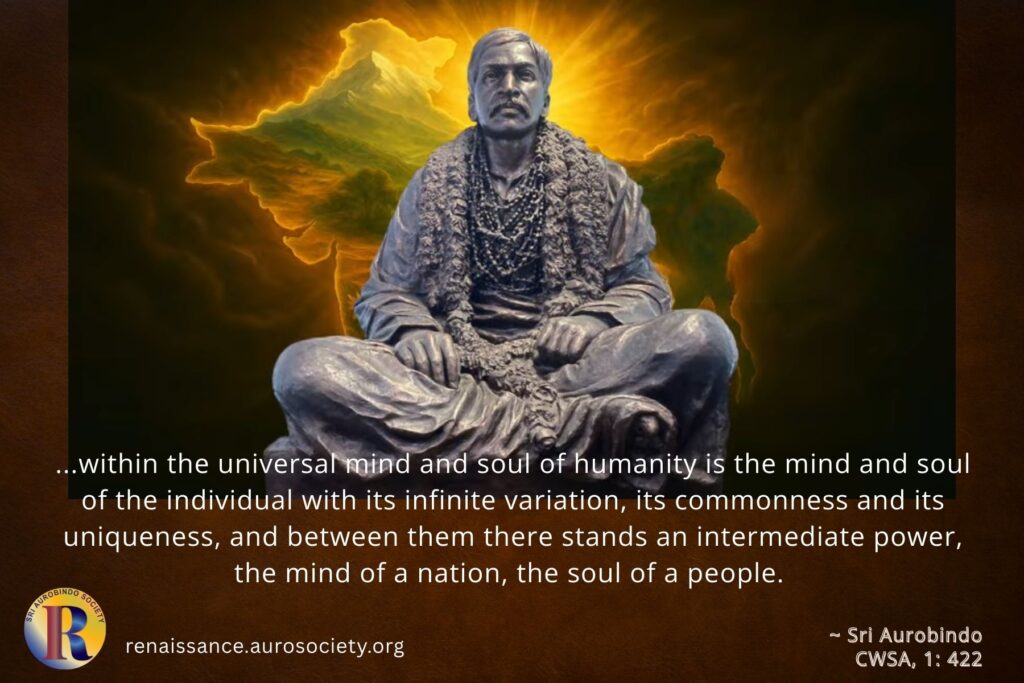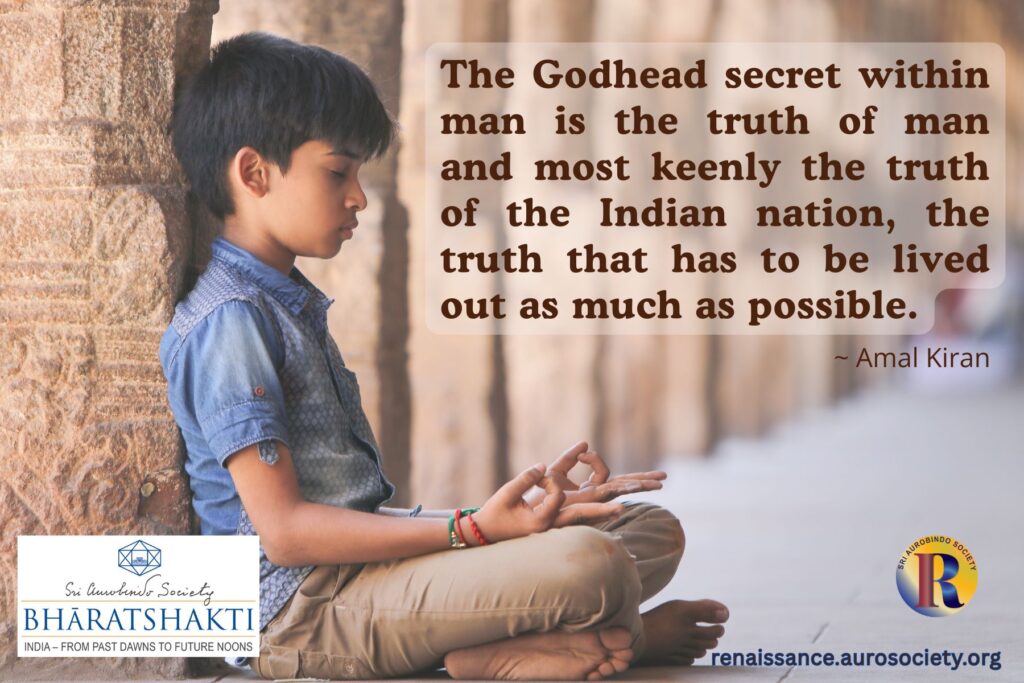Volume VI, Issue 9
Author: Sri Aurobindo
Editor’s Note: For the Guiding Light feature we highlight selections from Sri Aurobindo’s essay titled ‘The Renaissance in India‘. He speaks of a true understanding of the rebirth of the soul of India that is “governed by the principle of spirituality”. This new ideal of integral spirituality is not about other-wordliness or asceticism or excessive religiosity, but in its fullness is an all-inclusive orientation to life which takes all human aims and endeavours and gives them a greater, diviner, more intimate sense.
We present the selections in 2 parts and have made some formatting revisions for the ease of online reading, with no alterations in the text.

Misunderstandings about Spirituality
The renaissance, …a rebirth of the soul of India into a new body of energy, a new form of its innate and ancient spirit, prajñā purāṇī, must insist much more finally and integrally than it has as yet done on its spiritual turn, on the greater and greater action of the spiritual motive in every sphere of our living.
But here we are still liable to be met by the remnants of a misunderstanding or a refusal to understand,—it is something of both,—which was perhaps to a little extent justified by certain ascetic or religionist exaggerations, a distrust which is accentuated by a recoil from the excessive other-worldliness that has marked certain developments of the Indian mind and life, but yet is not justified, because it misses the true point at issue.
Thus we are sometimes asked what on earth we mean by spirituality in art and poetry or in political and social life,—a confession of ignorance strange enough in any Indian mouth at this stage of our national history,—or how art and poetry will be any the better when they have got into them what I have recently seen described as the “twang of spirituality”, and how the practical problems either of society or of politics are going at all to profit by this element.
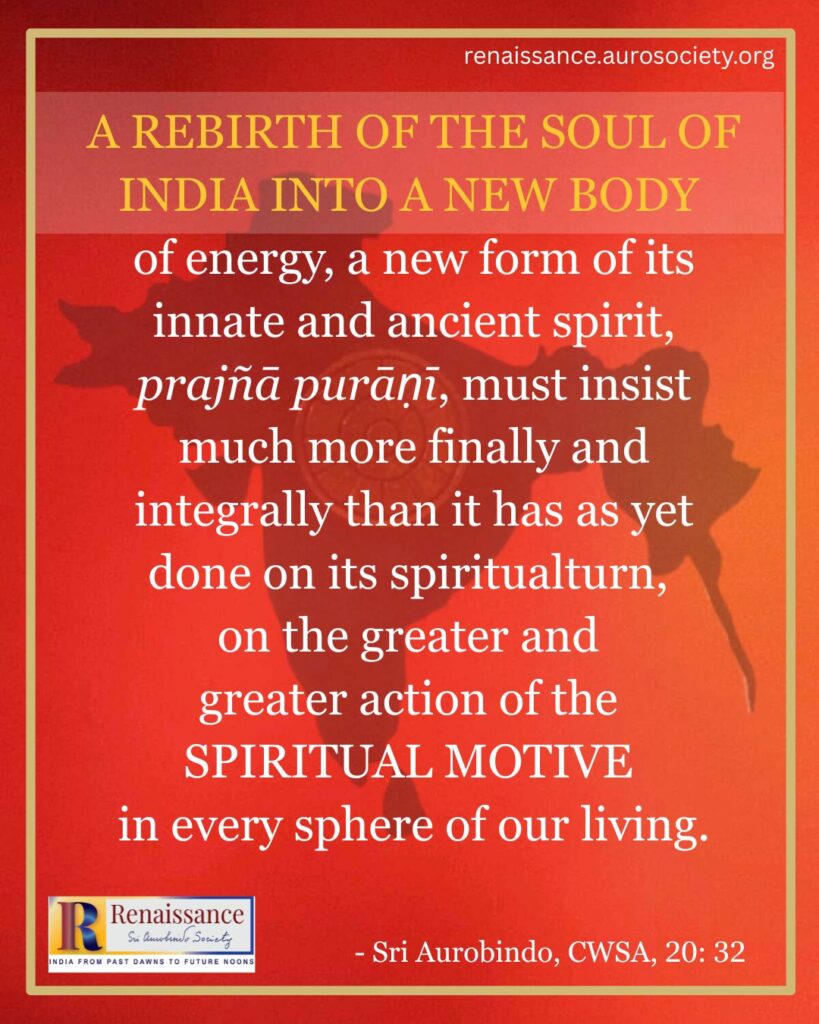
Echo of the Old Idea
We have here really an echo of the European idea,…that religion and spirituality on the one side and intellectual activity and practical life on the other are two entirely different things and have each to be pursued on its own entirely separate lines and in obedience to its own entirely separate principles.
Again we may be met also by the suspicion that in holding up this ideal rule before India we are pointing her to the metaphysical and away from the dynamic and pragmatic or inculcating some obscurantist reactionary principle of mystical or irrational religiosity and diverting her from the paths of reason and modernity which she must follow if she is to be an efficient and a well-organised nation able to survive in the shocks of the modern world. We must therefore try to make clear what it is we mean by a renaissance governed by the principle of spirituality.
What is Not Meant by the Spiritual Ideal
But first let us say what we do not mean by this ideal. Clearly it does not signify that we shall regard earthly life as a temporal vanity, try to become all of us as soon as possible monastic ascetics, frame our social life into a preparation for the monastery or cavern or mountain-top or make of it a static life without any great progressive ideals but only some aim which has nothing to do with earth or the collective advance of the human race. That may have been for some time a tendency of the Indian mind, but it was never the whole tendency.
Not Limited to Any Particular Religion
Nor does spirituality mean the moulding of the whole type of the national being to suit the limited dogmas, forms, tenets of a particular religion, as was often enough attempted by the old societies, an idea which still persists in many minds by the power of old mental habit and association; clearly such an attempt would be impossible, even if it were desirable, in a country full of the most diverse religious opinions and harbouring too three such distinct general forms as Hinduism, Islam and Christianity, to say nothing of the numerous special forms to which each of these has given birth.
Spirituality is much wider than any particular religion, and in the larger ideas of it that are now coming on us even the greatest religion becomes no more than a broad sect or branch of the one universal religion, by which we shall understand in the future man’s seeking for the eternal, the divine, the greater self, the source of unity and his attempt to arrive at some equation, some increasing approximation of the values of human life with the eternal and the divine values.
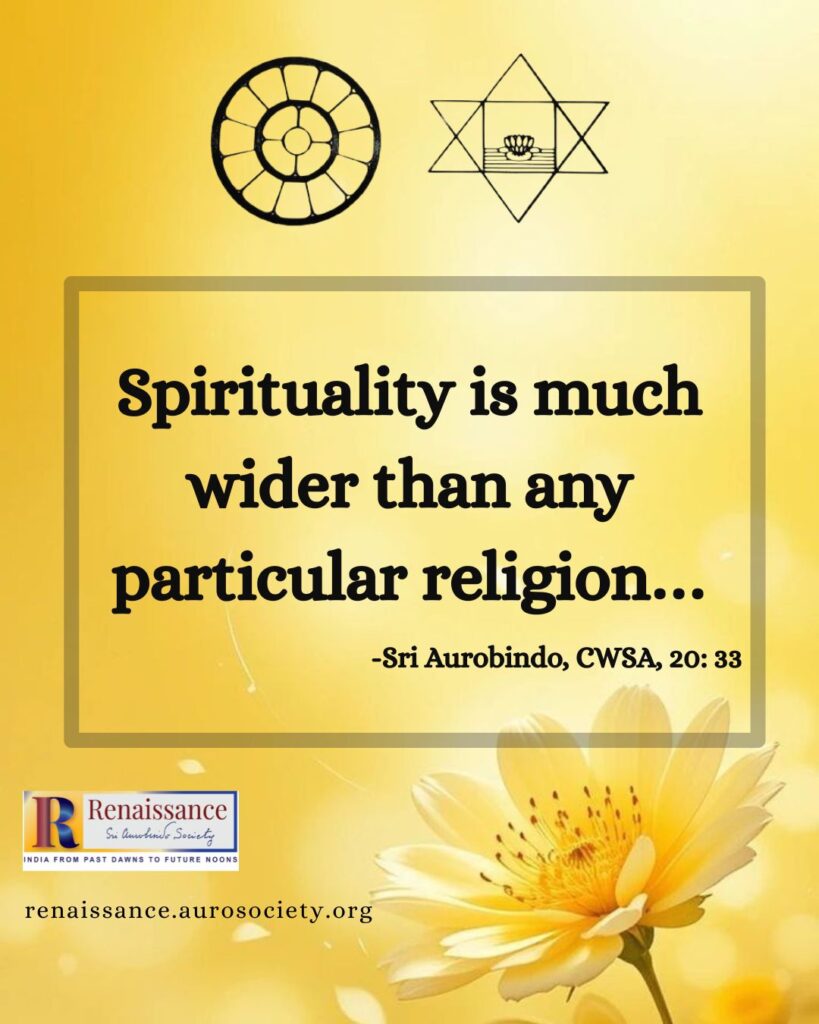
No Exclusion of Aims of Human Life or Problems of Modern World
Nor do we mean the exclusion of anything whatsoever from our scope, of any of the great aims of human life, any of the great problems of our modern world, any form of human activity, any general or inherent impulse or characteristic means of the desire of the soul of man for development, expansion, increasing vigour and joy, light, power, perfection.
Spirit without mind, spirit without body is not the type of man, therefore a human spirituality must not belittle the mind, life or body or hold them of small account: it will rather hold them of high account, of immense importance, precisely because they are the conditions and instruments of the life of the spirit in man.
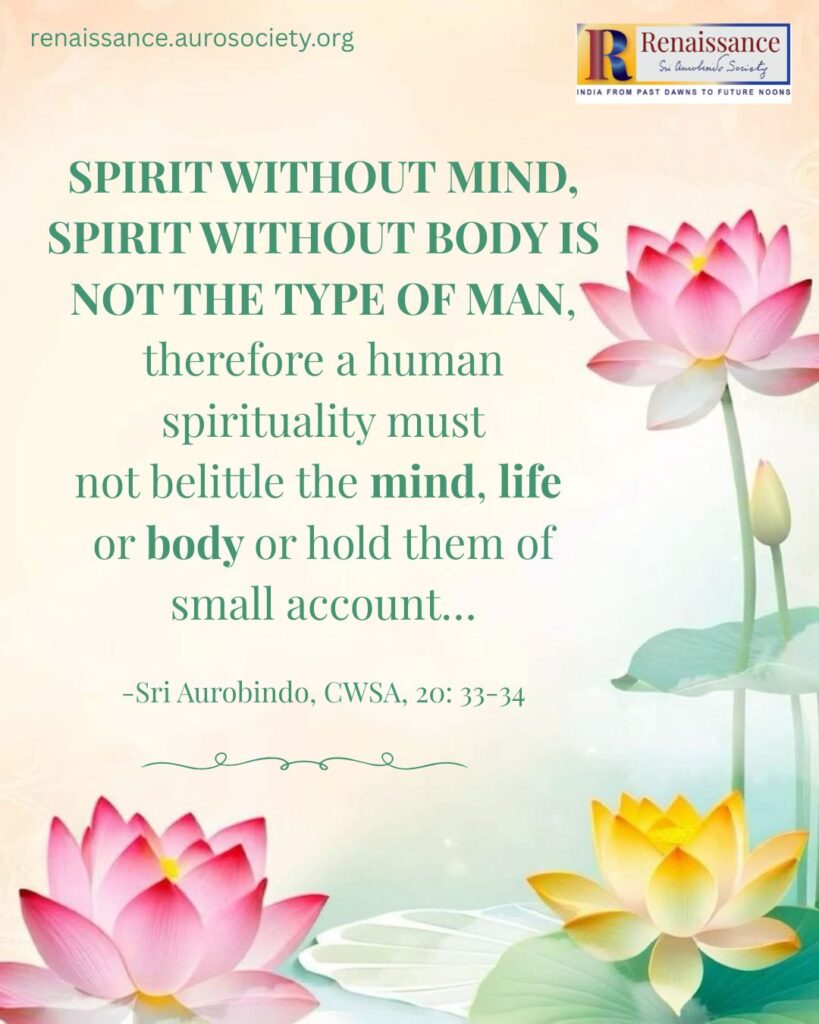
No Restriction to Any of the Activities of Life and Mind
The ancient Indian culture attached quite as much value to the soundness, growth and strength of the mind, life and body as the old Hellenic or the modern scientific thought, although for a different end and a greater motive.
Therefore to everything that serves and belongs to the healthy fullness of these things, it gave free play, to the activity of the reason, to science and philosophy, to the satisfaction of the aesthetic being and to all the many arts great or small, to the health and strength of the body, to the physical and economical well-being, ease, opulence of the race,—there was never a national ideal of poverty in India as some would have us believe, nor was bareness or squalor the essential setting of her spirituality,—and to its general military, political and social strength and efficiency.
Their aim was high, but firm and wide too was the base they sought to establish and great the care bestowed on these first instruments. Necessarily the new India will seek the same end in new ways under the vivid impulse of fresh and large ideas and by an instrumentality suited to more complex conditions; but the scope of her effort and action and the suppleness and variety of her mind will not be less, but greater than of old. Spirituality is not necessarily exclusive; it can be and in its fullness must be all-inclusive.
Continued in Part 2
~ Poster Design: Akshay Sonakiya

